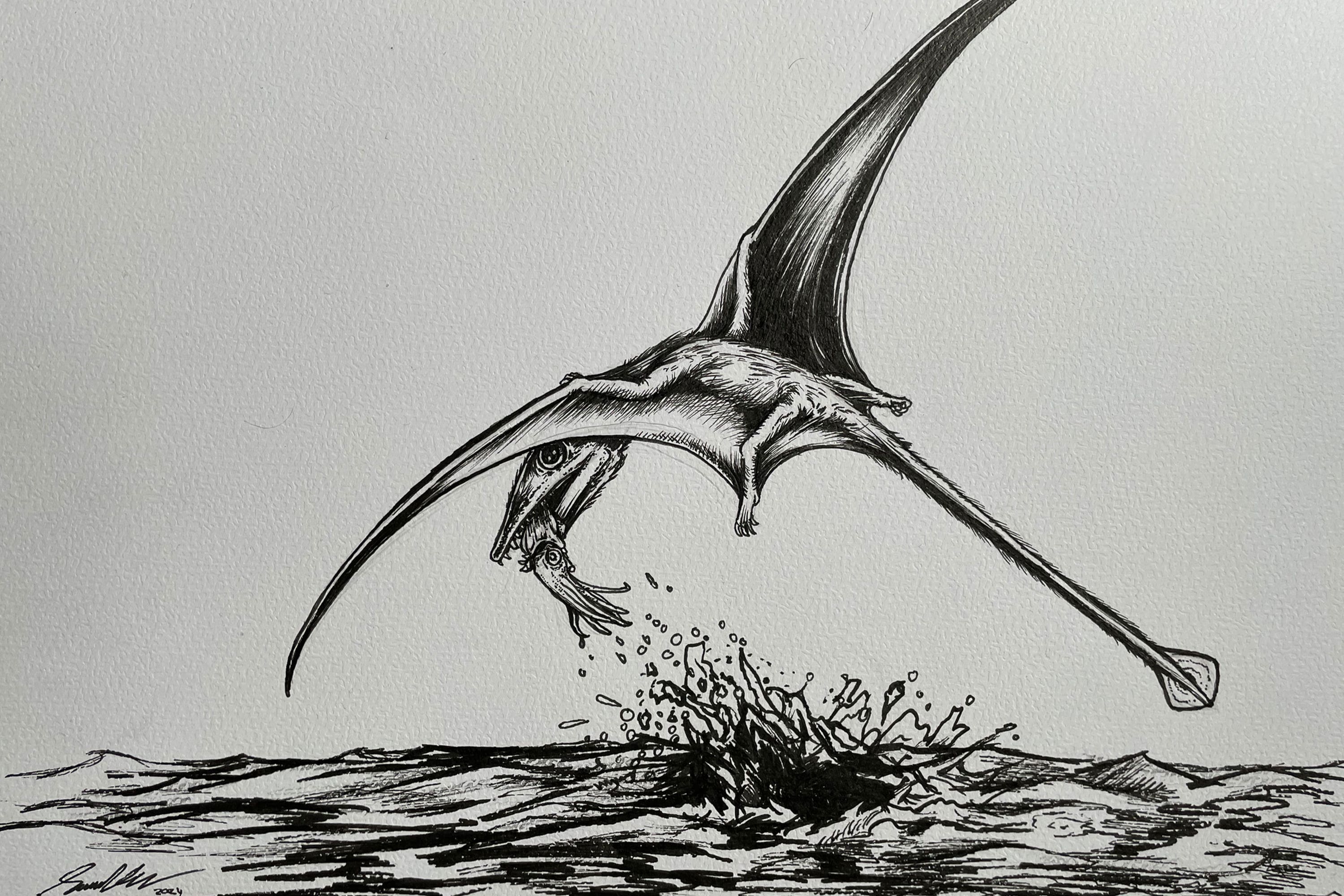Prehistoric flying reptiles lived on diet of squid and fish, scientists reveal
Analysis of ‘first-ever discovery’ of fossilised stomach contents provides insight into eating habits of pterosaurs.

Your support helps us to tell the story
This election is still a dead heat, according to most polls. In a fight with such wafer-thin margins, we need reporters on the ground talking to the people Trump and Harris are courting. Your support allows us to keep sending journalists to the story.
The Independent is trusted by 27 million Americans from across the entire political spectrum every month. Unlike many other quality news outlets, we choose not to lock you out of our reporting and analysis with paywalls. But quality journalism must still be paid for.
Help us keep bring these critical stories to light. Your support makes all the difference.
Scientists have found that prehistoric flying reptiles that lived 182 million years ago lived on a diet of small fish and squid.
The “first-ever discovery” of the fossilised stomach contents of pterosaurs has led to a unique glimpse into the feeding habits of the giant species, which had wingspans of up to 12 metres (39ft).
The findings, published in the Journal of Vertebrate Paleontology, were made by scientists from the University of Portsmouth and the Staatliches Museum fur Naturkunde Stuttgart (SMNS) in Germany.
The team had analysed the fossilised stomach contents of two pterosaur species, dorygnathus and campylognathoides, from the early Jurassic period, found in modern-day south-west Germany.
They found that dorygnathus ate small fish for its last meal while campylognathoides ate prehistoric squid.
Dr Roy Smith, from the University of Portsmouth’s School of Environment and Life Sciences, said: “It is incredibly rare to find 180 million-year-old pterosaurs preserved with their stomach contents, and provides ‘smoking gun’ evidence for pterosaur diets.
“The discovery offers a unique and fascinating glimpse into how these ancient creatures lived, what they ate, and the ecosystems they thrived in millions of years ago.”
Dr Samuel Cooper, also from the University of Portsmouth, said: “The fossilised stomach contents tell us a lot about the ecosystem at that time and how the animals interacted with each other.
“For me, this evidence of squid remains in the stomach of campylognathoides is therefore particularly exciting.
“Until now, we tended to assume that it fed on fish, similar to dorygnathus, in which we found small fish bones as stomach contents.
“The fact that these two pterosaur species ate different prey shows that they were likely specialised for different diets.
“This allowed dorygnathus and campylognathoides to coexist in the same habitat without much competition for food between the two species.”
Subscribe to Independent Premium to bookmark this article
Want to bookmark your favourite articles and stories to read or reference later? Start your Independent Premium subscription today.